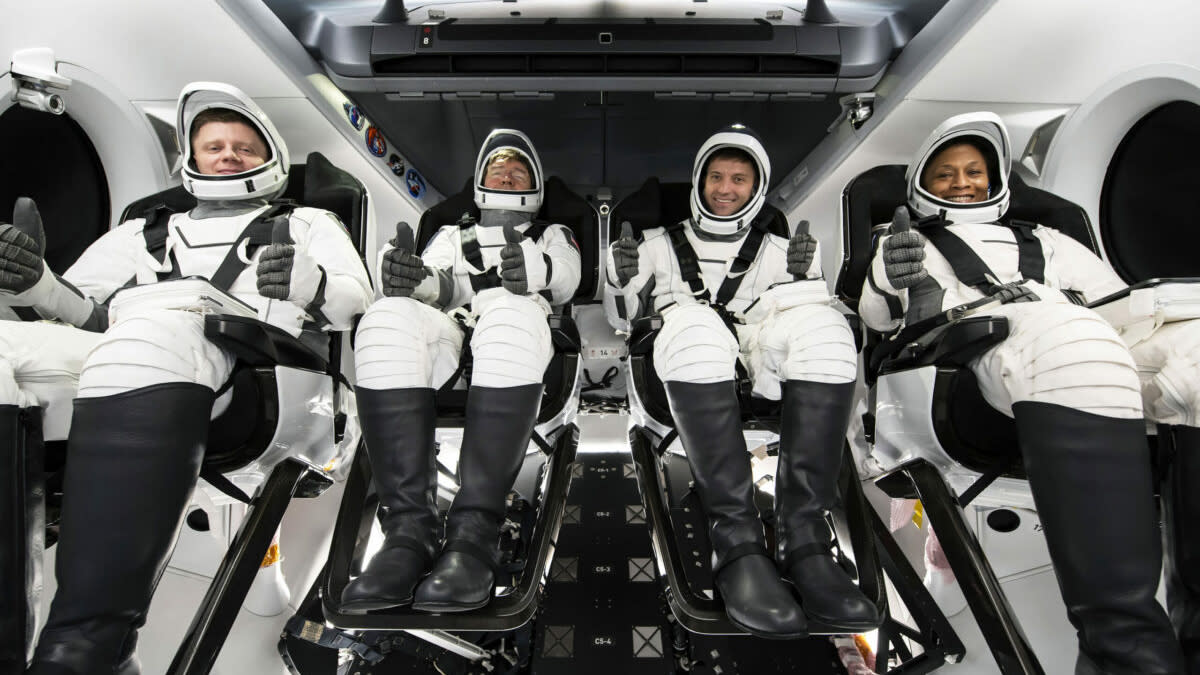SpaceX and NASA say Crew-8 astronauts won't launch to ISS until March 1 after private moonshot

We'll have to wait a little bit longer to see SpaceX launch its next astronaut crew into orbit for NASA.
On Thursday (Feb. 15), SpaceX and NASA agreed to postpone the launch of their joint Crew-8 mission to the International Space Station to no earlier than March 1, a two-day delay from an earlier Feb. 28 target that had already slipped six days. Liftoff is set for 12:04 a.m. EST (0504 GMT) atop a Falcon 9 rocket that will lift off from Pad 39A of NASA's Kennedy Space Center in Florida.
"The shift follows the successful launch early Thursday morning of the Intuitive Machines IM-1 spacecraft on a robotic mission to land on the Moon from Launch Complex 39A at NASA’s Kennedy Space Center," NASA wrote in a mission update Thursday.
RELATED STORIES:
— Russians will fly on SpaceX's Crew-7, Crew-8 astronaut missions: report
— SpaceX launches Crew-6 astronaut mission to space station for NASA
— SpaceX: Facts about Elon Musk's private spaceflight company
A SpaceX Falcon 9 rocket launched the IM-1 Nova-C lander Odysseus toward the moon in the wee hours of Thursday morning from Pad-39A, the same one that will be used to loft the Crew-8 astronauts. IM-1 is the first commercial moon mission by the company Intuitive Machines, which is carrying a suite of NASA and private payloads to a crater near the lunar south pole.
The Odysseus moon lander is scheduled to land on the moon on Feb. 22, SpaceX's original launch date for the Crew-8 mission. NASA and SpaceX pushed the Crew-8 launch back to Feb. 28 earlier this week, and now they've done so again.
Crew-8 will launch four astronauts to the ISS on a six-month mission as the relief for Crew-7, an astronaut team that rode a different Falcon 9 rocket to the station on Aug. 26. The crew includes NASA astronauts Matthew Dominick, Michael Barrett, Jeannette Epps and Russian cosmonaut Alexander Grebenkin.

